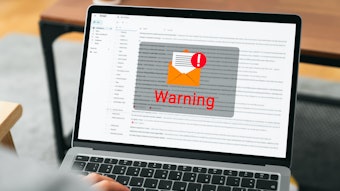No longer considered the final frontier for the “single and desperate” crowd, online dating is now a viable and respected way to meet potential partners. But things can go horribly awry in cyberland if you don’t know how to protect yourself from risks to your physical, emotional and even financial safety. So, before you take your heart into your hand and log on, check out the following advice from Joe Tracy, publisher of Online Dating Magazine.
Bware of the Con. Scam artists exist, and such people seek to separate you from your money via online dating services. (Services that are free and don’t require users to provide a credit card number are the ones most likely to attract scammers.) Learn about the common cons. Generally scammers won’t ever meet you in person—most operate out of Nigeria, though many claim to be from the United States but “working” in another country at the moment. Stick with people you can meet in person after communicating online for a bit.
Keep Ur Wits About U. The online world and reality are two different things. Most online daters tell little white lies in their profiles, but the deceit can sometimes be more serious. Beware of profiles that seem just too good to be true, and try to stick with people in or near your city.
Think B4 Sharing. Until you really get to know your online amour, keep the sharing of personal information—such as phone number, address, school, employer, names of loved ones and especially any mention of your children—to a minimum. Never use your real name as your username.
Look 4 a Photo. Married people do sometimes turn to online dating and they rarely post a photo. So, even though the absence of a photo doesn’t necessary mean that the person is married, the presence of one usually means that he or she isn’t.
B Nice but Firm. Insulting someone, or simply disappearing because you don’t share an interest in pursuing a dating relationship, isn’t only rude; it can trigger a strong negative response from that person. This can lead to problems, especially if you’ve shared any personal information. You’ll be safest if you respectfully and politely say, “Thank you for the time you’ve taken to communicate with me; however, I am pursuing other interests and wish you the best.” —Linda Kossoff







